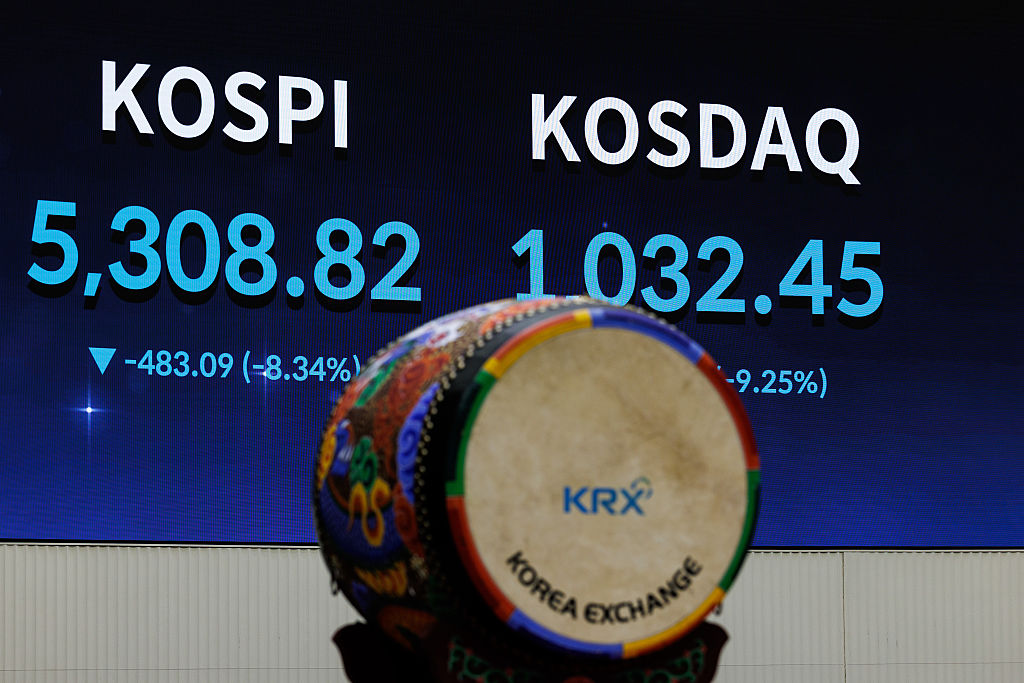Are the 'N-11' more solid than the Brics?
Life has been tough for the Brics lately. Now fund managers are turning their attention to the 'N-11' - the next 11 emerging economies that they believe will drive future world growth.
Get the latest financial news, insights and expert analysis from our award-winning MoneyWeek team, to help you understand what really matters when it comes to your finances.
You are now subscribed
Your newsletter sign-up was successful
Want to add more newsletters?
It seems the era of the Brics (Brazil, Russia, India and China) is coming to an end. The acronym has been a handy marketing tool for selling emerging-market funds since it was coined by Jim O'Neill of Goldman Sachs back in 2001. But since the start of the financial crisis in 2008, life has been a lot tougher for the highest-profile emerging markets.
China has failed to outperform the MSCI Emerging Markets Index, says Emma Wall in The Sunday Telegraph. Brazil has underperformed too, over the past four years, by 20%. Indeed, in the first half of 2012, "beleaguered" European stocks actually beat the MSCI Brazil index. With more and more analysts finally accepting that China's phenomenal growth days are behind it for now at least and that a hard landing lies ahead, fund managers are trying to find fresh emerging markets to pitch.
O'Neill, for example, has produced a new less catchy acronym: the N-11'. This moniker describes the next 11' developing economies O'Neill believes will drive future world growth. They are Bangladesh, Egypt, Indonesia, Iran, Mexico, Nigeria, Pakistan, the Philippines, South Korea, Turkey and Vietnam. Reasons to back them range from great demographics (Vietnam, the Philippines) to improving public finances (Turkey).
Try 6 free issues of MoneyWeek today
Get unparalleled financial insight, analysis and expert opinion you can profit from.

Sign up to Money Morning
Don't miss the latest investment and personal finances news, market analysis, plus money-saving tips with our free twice-daily newsletter
Don't miss the latest investment and personal finances news, market analysis, plus money-saving tips with our free twice-daily newsletter
But for all the exciting stories you can dig up for various emerging markets, you might be better off concentrating on rather more staid-sounding mature markets. As we've noted several times in the past, despite what you might intuitively think, rapid economic growth does not go hand in hand with high stockmarket returns. As Steve Johnson in the Financial Times notes, "exhaustive research" by Elroy Dimson, Paul Marsh and Mike Staunton of the London Business School found that, "if anything, it is the opposite".
They analysed data from 83 countries, "segmenting them into quintiles based on GDP growth over five years. They found that subsequent stockmarket returns were higher in the countries" with the slowest GDP growth. What's the problem? It's partly, as Marsh says, due to stockmarkets pricing in the economic growth story. But other studies also show that investors systematically overprice growth' stocks compared to value' ones.
We're suckers for an exciting story, which probably explains why fund managers like to use catchy acronyms to attract our attention. But for now, with global growth ailing and the commodities boom turning to bust, we'd favour cheap developed markets, such as Europe and Japan, over most emerging markets.
Get the latest financial news, insights and expert analysis from our award-winning MoneyWeek team, to help you understand what really matters when it comes to your finances.
Piper Terrett is a financial journalist and author. Piper graduated from Newnham College, Cambridge, in 1997 and worked for Germaine Greer and for Adam Faith’s Money Channel before embarking on a career in business journalism.
She has worked for most top financial titles, including Investors Chronicle, Shares magazine, Yahoo! Finance and MSN Money. She lectures part-time at London Metropolitan University and is the author of four books.
-
 One million more pensioners set to pay income tax in 2031 – how to lower your bill
One million more pensioners set to pay income tax in 2031 – how to lower your billHundreds of thousands of pensioners will be dragged into paying income tax due to an ongoing freeze to tax bands, forecasts suggest
-
 Stock market circuit breaker: Why did Korean shares pause trading?
Stock market circuit breaker: Why did Korean shares pause trading?The fallout from the conflict in the Middle East hit the Korean stock market on 4 March, with shares forced to temporarily stop trading. What is a stock market circuit breaker, and why did the KOSPI trigger one?